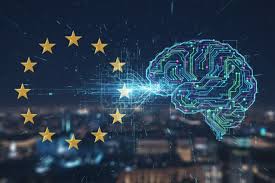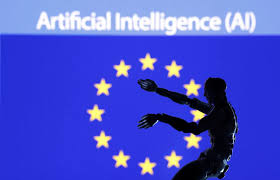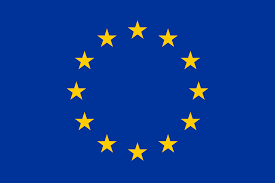Europe once dreamed of writing the rulebook for artificial intelligence — a bold, global standard that would protect citizens and keep machines in check. But now, under growing pressure from Silicon Valley and its own industry leaders, that dream is being rewritten.
The EU’s landmark AI Act, once hailed as the toughest in the world, is being softened. Lawmakers in Brussels are backing away from their original hard line, worried that going too far could crush innovation and push European startups out of the race.
Inside the European Parliament, the mood has changed. The conversation has shifted from control to collaboration, from strict oversight to “finding balance.”

A Change in Tone — and in Spirit
When the EU first drafted the AI Act back in 2021, the message was clear: Europe would lead the world in ethical AI. It would draw a line against surveillance, discrimination, and data misuse.
But 2025 feels different. AI has exploded faster than anyone expected, reshaping industries, economies, and even politics. Now, policymakers are scrambling to keep up.
“We’re not abandoning our values,” one EU official said recently, “but we can’t ignore the pace of innovation. Regulation has to be smart — not suffocating.”
That statement sums up Europe’s dilemma perfectly. The AI Act was born out of idealism; now, it’s being rebuilt out of pragmatism.
Tech Giants Turn Up the Pressure
Make no mistake: Big Tech played its cards well. Over the past year, Google, OpenAI, Meta, and Microsoft have flooded Brussels with lobbyists and policy experts, warning that Europe’s strict rules could make it a “no-go zone” for AI research.
And their argument struck a nerve.
AI is global — and mobile. Companies can move where the rules are lighter, and investors follow them. “Europe risks becoming a museum of innovation,” one tech executive said bluntly.
The result? Key provisions in the law are being rewritten. Requirements for full transparency about training data are now “best-effort obligations.” Strict audits for general-purpose AI models? Likely to be replaced by voluntary guidelines.
It’s a victory for the industry, but a bittersweet one for those who believed the EU could stand up to corporate power.
The Battle Between Innovation and Regulation
Europe’s struggle isn’t unique. Around the world, governments are wrestling with the same question: How do you encourage innovation without losing control?
The U.S. has taken a light-touch approach — letting the market lead. China, by contrast, keeps tight state control over its AI sector. The EU wanted a “third way,” focused on ethics and human rights.
But staying in the middle is hard when technology moves faster than politics.
“Trying to regulate AI is like trying to catch smoke,” says Sophia Martínez, a policy researcher in Madrid. “It’s everywhere, changing shape constantly. You can’t pin it down without stifling it.”
Her words ring true. The rise of generative AI caught lawmakers off guard, and the EU suddenly found itself legislating technology that evolves by the week.

What’s Actually Changing?
The final version of the AI Act isn’t done yet, but leaks and reports show where things are heading. Among the major tweaks:
-
- Softer rules for large AI models. Companies like OpenAI and Anthropic may self-assess compliance instead of facing constant audits.
-
- Open-source developers get exemptions. Smaller projects and non-commercial efforts won’t face heavy paperwork.
-
- More time to comply. Firms will likely get grace periods before enforcement kicks in.
-
- Fewer data disclosures. Training datasets — once a transparency requirement — can now stay private for “security and trade” reasons.
On paper, these changes make Europe more “innovation-friendly.” But critics say it also makes the law toothless.
Activists Are Not Happy
Digital rights groups are sounding the alarm. “Big Tech is winning the rewrite,” warns Marta Rinaldi from Digital Europe Watch. “The AI Act was meant to protect citizens — not corporations.”
They argue that transparency isn’t optional when algorithms decide who gets a job, a loan, or even parole. Without clear oversight, they fear a future where discrimination hides behind code.
“The EU promised a human-centered approach,” Rinaldi adds. “If they give in now, they’ll lose the moral high ground.”
The Fear of Falling Behind
But for many European leaders, the fear of being left behind is even stronger than the fear of Big Tech.
AI investments in the U.S. and China are skyrocketing. Meanwhile, European startups often struggle just to access the computing power they need to compete.
According to the European Tech Observatory, 42% of AI startups are already considering relocating to the U.S. or Canada due to “regulatory uncertainty.”
That’s why countries like France and Germany — home to promising AI ventures such as Mistral and Aleph Alpha — are pushing for flexibility. Their message is clear: “Let’s build first, regulate later.”
A Global Domino Effect
Whatever Europe decides will ripple far beyond its borders. Nations from Canada to Japan are watching closely, waiting to see if the EU can craft rules that protect people without crippling innovation.
If it succeeds, the AI Act could become a global template — much like the GDPR did for data privacy. But if it fails, it could set back global trust in regulation entirely.
“The world is watching Brussels,” says Mark Duval, a tech policy analyst. “This is about more than just Europe. It’s about whether democracy can keep up with technology.”
The Market’s Reaction
Investors, naturally, are reading between the lines. A softer AI Act could boost European tech stocks, freeing up billions in delayed investments. Analysts at MorganTech predict a short-term rally if compliance costs drop.
But there’s a catch. Weak oversight could lead to scandals — biased AI decisions, privacy breaches, or misinformation. And when that happens, trust collapses fast.
“Markets love growth,” Duval notes. “But they also love stability. You can’t have one without the other.”
What Happens Next
Negotiations are entering their final stretch. The EU hopes to wrap things up before the end of 2025, with the Act taking effect sometime in 2026.
The big question remains: Can Europe stay true to its values and stay in the AI race?
If lawmakers strike the right balance, Europe could emerge as a leader in responsible innovation — a continent where ethics and progress coexist.
But if the compromise goes too far, Europe risks becoming a spectator in the AI revolution it once tried to lead.

Final Thoughts
Europe’s dream of building a “human-centered AI future” isn’t dead — it’s just evolving. Maybe this is what progress looks like: messy, uncertain, but still moving forward.
Because in the end, the EU’s AI Act isn’t just about machines or algorithms. It’s about people — about how we choose to live with technology that’s becoming more human every day.
And that’s a decision no law can make easy.
Curious about AI ethical dilemmas? Check